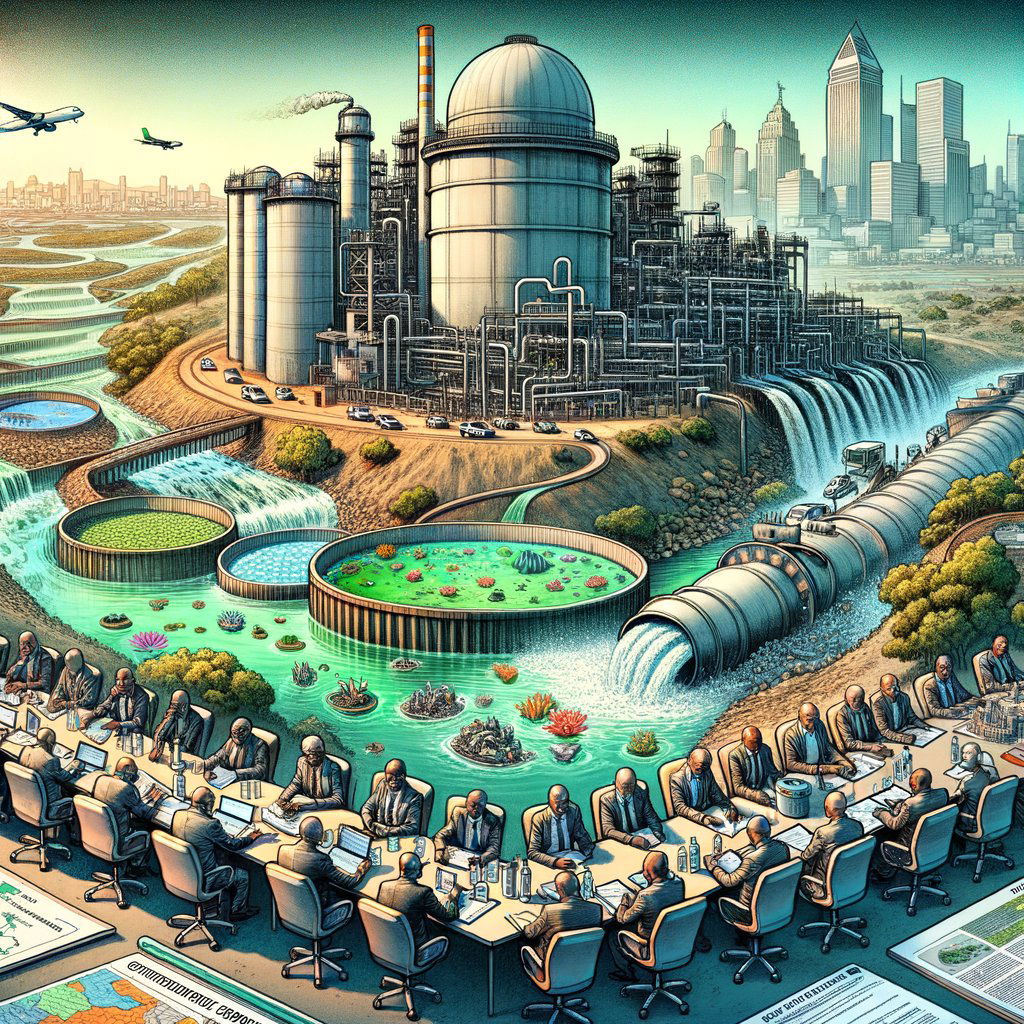Image created by AI
Gauteng's Wastewater Treatment Plants Identified as Major Polluters in Water Crisis
Gauteng, South Africa's economic heartbeat, faces a dire environmental situation as wastewater treatment plants are pinpointed as primary culprits in the pollution of the province's water courses. Revealing the stark reality, Water and Sanitation Deputy Minister Sello Seitlholo has highlighted that these plants stand as the significant source of contamination affecting rivers and dams across the region.
The Department of Water and Sanitation (DWS) is not turning a blind eye to the situation and has, to date, initiated 88 criminal cases against municipalities following probes into various environmental contraventions. Not operating in isolation, the Department of Forestry, Fisheries and the Environment is conducting its own investigations into incidents of river pollution.
In a decisive gathering on Monday, Seitlholo brought together key municipal representatives from the Ekurhuleni, Tshwane, Johannesburg metros, and Mogale City at the Centurion Lake Hotel. The proactive deputy minister has been down this path before, having evaluated all municipal wastewater systems back in 2021. The subsequent release of the Green Drop Report in 2022, followed by a progress report in December 2023, painted a bleak picture: not only are wastewater treatment systems in a worrying state but the resulting contamination has infiltrated streets, rivers, and dams.
Seitlholo's passion for change comes with a clear directive to municipalities: prioritize enhancing wastewater treatment infrastructure, attain effluent standards, and boost skills and operational maintenance capacities. His holistic approach calls for improved town-planning, land use management, and reinvestment strategies to finance the overhauling of water and sewage treatment systems, alongside their distribution and collection networks.
Gauteng's water crises ripple into the economy, with the Vaal and Crocodile rivers at stake—waterways vital for agriculture, domestic use, industry, and mining. Notably, the Barrage, Vaal, Hartbeespoort, and Roodeplaat dams offer not just water but also recreational and tourism prospects, essential for local and provincial development. Yet, they too face the looming threat of sewage-induced pollution, brought on by dysfunctional wastewater mechanisms, overburdened systems, and municipal mismanagement.
Response to this predicament has been mixed. Although DWS provided financial and technical assistance to municipalities, the alarming decline in water service quality points towards persistent neglect. Seitlholo has called on these local authorities to heed the department's directives, remedy the infrastructural deficiencies, and above all, prioritize maintenance and operation of wastewater treatment plants.
Determined to change the tide, the deputy minister reaffirmed that the water use compliance, monitoring, and enforcement directorate of his department will intensify its regulatory role. The aim is unambiguous—to enforce more consistent regulatory actions and compel municipalities to address the pressing issue of pollution and preserve the integrity of South Africa's water courses.










